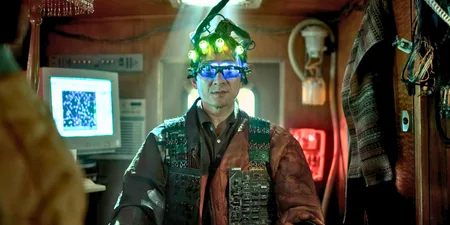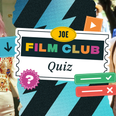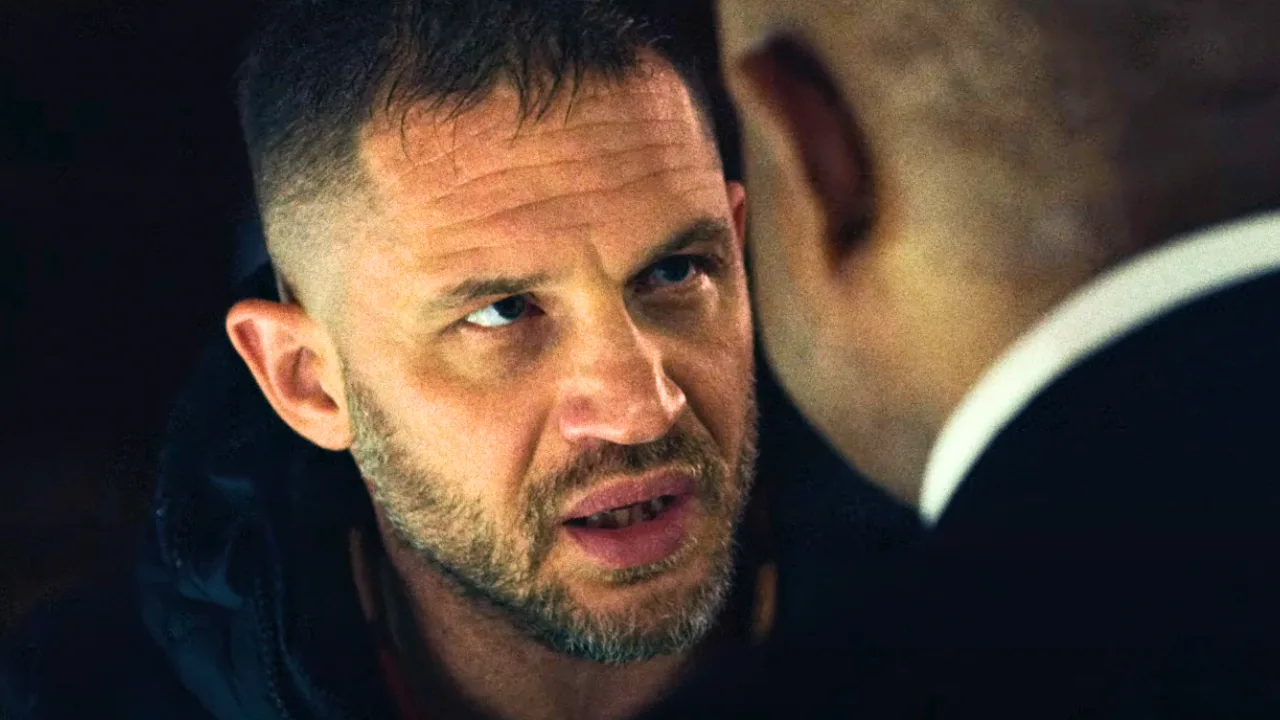Blue Story – the directorial debut of rapper-turned-filmmaker Rapman – was one of the most acclaimed British movies of last year
It is an uncompromising look at the real-life ‘postcode’ gang wars in South London where Rapman grew up. The film follows teenage friends, Timmy (Stephen Odubola) and Marco (Michael Ward), whose lives are torn apart simply because one of them has to cross gang lines to get to school.
Despite being well-received by both critics and audiences, Blue Story faced controversy when it was pulled by several cinema chains after an incident at a cinema in Birmingham. That would have been enough to kill to the momentum of most low budget movies, but a groundswell of grassroots support stood up for the film on social media, pushing Blue Story to a whole new audience. Ahead of the film’s DVD and download release, we spoke to Rapman about the film’s journey.
Blue Story uses an unusual technique of having you rap narration over the characters – where did that come from?
I grew up a big fan of TV and film, and a big fan of music – listening to Biggie, 2Pac, Jay-Z, Nas, all of that. Every time I would listen to their albums, I would hear them tell stories in their raps, and they would never do music videos to the stories. So when I started rapping, I decided I was going to do the visuals to my rap story.
How autobiographical is the film?
It’s very autobiographical, I would say maybe fifty percent. And the rest of it is truth, it’s just not my truth. Truth from people I knew in the neighbourhood. I grew up in Deptford and went to school in Camberwell, and I went through all the headaches Timmy went through [in the film].
Living in one area and going to school in another area is one thing, but when the two postcodes are in a massive gang war, you literally get caught in the middle. There’s no way out of it. If you’re a kid with any connection to the world, you’ll get dragged in, even if you are not a gang member yourself. And I wasn’t a gang member when I went to school, but I ended up getting pulled into that kind of world. I wanted to base the film on that pressure.
Can you explain what the reality of the postcode wars are like in South London?
Postcodes wars are something I feel like anyone can relate to, you don’t have to be from London, or Glasgow or Manchester. It’s like the Crips and Bloods in America. One gang is in one area, the other is in another area. How do these wars start? Nobody knows. For example, where I grew up, Lewisham, was in a mad postcode war with people from Peckham. I don’t know how that war began – if I told you, it would be a guess.
But if I’m a teenager and I live in Lewisham, I will be labeled as that gang member. The gang in Lewisham is called Ghetto Boys, so I will be labeled as a Ghetto Boy, even though I’ve got no affiliation to them, I don’t even know any of the gang members.
If I was to take a walk through Peckham, maybe just to visit a friend or whatever, if I went past a group of guys who were in that Peckham gang, they would ask me, ‘Where are you from?’ That question was literally life or death. How you answered that would decide if you were going to walk away from that situation, or if you are going to the hospital.
What films did you look to for inspiration on Blue Story?
I remember a couple of weeks before filming I watched Boyz n the Hood, New Jack City, Menace II Society, all of those movies because those were the ones that reminded me the most of Blue Story. I remember watching those as a kid, and thinking it was like what’s going on in London. The first review that came out said it was a UK Boyz n the Hood, so we hit the target.
What was it like when you found out that the film had been pulled by cinema chains?
It’s crazy, I remember being on Instagram, I was on social media a lot at the time as I was pushing the movie, trying to get the whole world to watch it. I remember getting a DM from a supporter saying “Aw mate, your movie is going to get banned now because a group of kids pulled out knives in a cinema screen.” I didn’t even reply, I read it and just carried on.
The next morning I got a call from the head of Paramount, John Fletcher, saying they are pulling the movie from the Vue because there was a big fight that they are connecting to Blue Story. I was like “Aw, that’s a shame, Birmingham was good to us. People liked it over there.” [He replied] “No, not Vue Birmingham. All of the Vues.” I was like, “What!?!”
The Vues were like thirty percent of our screens, maybe more. This was opening weekend. It kept getting drummed into my head that opening weekend is what counts. We were killing it, we were at over £1 million [box office]. It was the third day, we were expecting to go £1.5 million, and we just heard thirty percent of our screens were pulled. I had a big figure in my head for the opening weekend for what we could do to make history. So I was angry, I was fuming.
Why, if there was an incident in one screen, were they pulling it from all screens? I don’t get that. What has Birmingham got to do with Manchester, London, Ireland? I will never know what my opening weekend would have been now because I didn’t have an even playing field.
There are plenty of films that feature violence and guns that don’t get pulled from cinemas – why do you think this happened to Blue Story?
I just think Blue Story was so real, for what it was. There was such a buzz about it. I don’t know how it was on the outside, but in the urban music and film world, it was the talk. Everyone’s kids were watching it. I think it was so much they wanted to pull it down. “This is not good for the kids, all of our kids are leaving the house to go watch a movie where there’s shooting in it, and there’s violence in it,” and [they were] forgetting the message. And I think what happened was, [they thought] “it’s influencing them too much, just pull it. No one will care, it’s just a low budget, British hood movie.” But more fool them. All it did was make it extend to a whole new audience who would have never even know about Blue Story until they pulled it from the cinema.
There has been a lot of love for Blue Story on social media – both when it was pulled, and from fans in general. How does that feel?
When I saw it was trending #NoBlueNoVue, I loved it. The whole of Twitter went fully behind it, saying “put that movie back on”. It felt good, but I didn’t think it would make a difference. I was still in a bit of a cloudy place, that’s just how it is. As a black man coming from South London, it’s always going to be a struggle.
But the kids loved it, man. I can’t even speak about the amount of tweets. People saying they took their kids three times because they wanted them to see the message again and again. Kids messaging me saying I’ve made them see the whole gang stuff in a different light. It really just did everything it was meant to do.
Blue Story is available to Download & Keep and on DVD now.













































